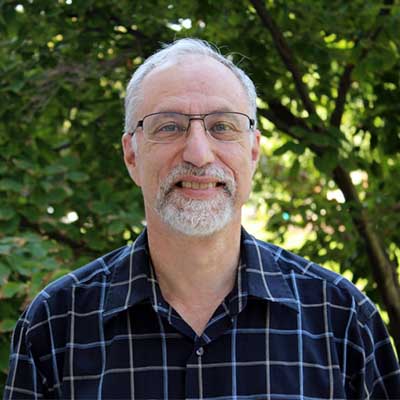
Howard Katz
Howard Katz, a professor of materials science and engineering, is a pioneer in the fields of organic electronics and photonics. He holds a joint appointment in the Department of Chemistry at the Krieger School of Arts and Sciences.
Katz’s research interests lie in organic/hybrid materials, especially organic semiconductors and photonic polymers, novel conjugated compounds, molecular recognition and self-assembly, novel approaches to fabrication, high-field devices, volatile compound and biomarker sensing, energy conversion, and logic devices. He established the structural, physical and synthetic organic chemical principles for several material classes, including molecular semiconductors and nonlinear optical polymers, as they first emerged, from their inception as scientific discoveries through their widespread investigation and application.
For example, Katz was the first to report the value and methodology of organic semiconductor (OSC) syntheses that avoided impurities responsible for morphological and electronic heterogeneity. He introduced several rigid and strongly assembling electron donor subunits, such as benzodithiophene and anthradithiophene, that are now considered the linchpins of conducting polymers and printable OSCs. Katz also was the first to promote the idea that the combination of material properties and device architecture of organic field-effect transistors (OFETs) was highly suited to chemical detection. He is credited with the first published paper describing this application.
Katz’s most recent publications reveal changes in charge carrier density at organic semiconductor-dielectric interfaces, demonstrations of mechanism-based enhancements to biosensor and vapor sensor performance, and the uses of static-charged polymer structures leading to increased conductivity and thermoelectric activity. His current projects address the areas of chemical and biomolecule sensors, highly conducting doped polymers, dielectric heterostructures, compound semiconductor-organic hybrid structures, self-assembled nanostructures, thermoelectric energy conversion, and cancer detection.
A holder of 54 U.S. patents, Katz was named to the National Academy of Inventors in 2017 and has two R&D 100 Awards. He is an elected member of the JHU Academic Council.
Katz has served as an associate editor for the Journal of Materials Research and as an editorial board member for Chemistry of Materials. He is an editorial advisor for ACS Applied Materials and Interfaces and MRS Communications. He has served on the advisory boards for Orthogonal Inc., Agira and Nanobio Materials Consortium and as president and government affairs committee chair of the Materials Research Society.
Katz received an ScB degree in chemistry, and in humanities and science with a concentration in music, from the Massachusetts Institute of Technology in 1978. He earned a PhD in organic chemistry from the University of California, Los Angeles, in 1982. He worked for AT&T Bell Laboratories (Lucent Technologies) before joining the Johns Hopkins faculty in 2004.


